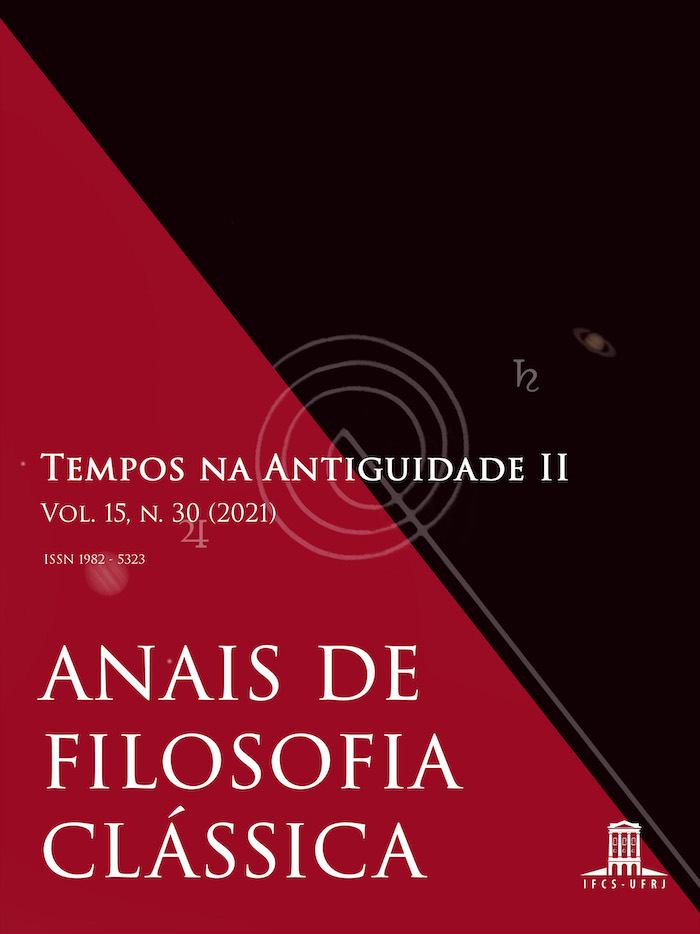Èṣù e a origem do “tempo que passa” na tradição yorùbá
DOI:
https://doi.org/10.47661/afcl.v15i30.51251Keywords:
Èṣù, Oríkì, Emptiness, Time, YorubaAbstract
The purpose of this article is to present a reflection on Èṣù, a yorùbá deity and its relationship with time, from an oríkì (praise) that was used as the epigraph of the VIII Ousia International Symposium. The Symposium, which had as its theme "The Problem of Time in Antiquity," on its poster displayed an oríkì that states, "Èṣù pa ẹyẹ láná pẹ̀lú sọ li òkúta lóní." The most common translation is "Èṣù killed a bird yesterday with the stone he threw today." The statement, as can be seen, is counter-intuitive and hurts (or at least inverts) the well-known cause and effect relationship. Due to this inversion (the effect happening before the cause), our mind searches for a solution to what seems to us like a riddle. We are left wondering how is it possible to act in this way? What do the ancient yorùbá people mean by this statement? These are the questions that guide this reflection.References
BASCOM William R. Sixteen Cowries: Yorùbá Divination from Africa to the New World, Indiana University Press, Londres, 1980
BENISTE, J. "Dicionário Português-Yorùbá” Bertrant Brasil, Rio de Janeiro, 2021.
CROWTHER, S., A vocabulary of the yoruba language. Seeleys, Fleet Street and Hanover street, Hanover square, London, 1852.
ELBEIN DOS SANTOS, Juana. Os nagô e a morte. Petrópolis: Vozes, 1984
_________ Èṣù, Salvador, Ed. Corrupio, 2014, pag. 112 (tradução nossa)
J. Lorand Matory, Yoruba, as Rotas e Raizes da nação transatlântica, 1830 - 1950, Horizonte antropológico, disponível em https://www.scielo.br/j/ha/a/gXdf3gXQczbgGVRzWPMjq7f/?lang=pt&format=pdf, visitado em 03/03/2022
MARINS, L. Òrìsà dídá ayé: òbátálá e a criação do mundo iorubá. Edição do autor, São Paulo, 2013.
OGUNDIPE, A., Èṣù Elegbara; Chance, Uncertainly in yorùbá Mythology. Kwara state Univ.Press, Ilorin, 2012
ÒNÀ, VELOSO, C.H., Notas preliminares sobre vida boa a partir da cosmo-perceção yorùbá, em Capoeira – Revista de Humanidades e Letras | Vol.7 | Nº. 2 | Ano 2021 | p. 138 disponível http://www.capoeirahumanidadeseletras.com.br/ojs-2.4.5/index.php/capoeira/article/view/375
TAO TE CHING - O Livro do Caminho e da Virtude Lao Tse Tradução do Mestre Wu Jyn Cherng disponível em Sociedade Taoísta do Brasil (http://www.taoismo.org.br), visitado em 03/03/2022


